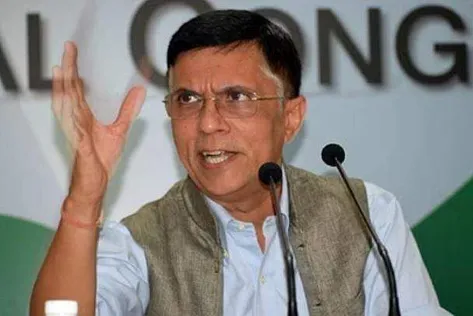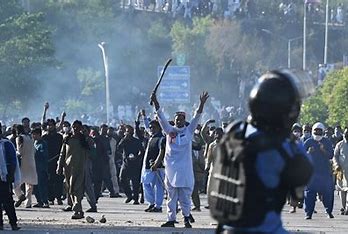
Oftentimes judiciary and Indian legal system have fortified the rights which are associated with dead person from dignity of the dead person to decent burial. But due to this ongoing unprecedented pandemic “COVID 19”, the situation has become very catastrophic and the conundrum of this situation makes it more chaotic one. The dreadful and substandard situation of patients and dead bodies make us question the very existence of rights which are available to dead persons in the light of the status quo.
Article 21 guarantees every individual the fundamental right to life and personal liberty, this right to life encompasses the right to enjoy one’s life with dignity. While we may enjoy this right for the living there has an outcry for rights being extended to the dead too. The scope of this Article 21 has also been deliberated in Suo Motto vs. The state of Tamil Nadu where it has clearly been stated that
“the right to life enshrined in Article 21 cannot be restricted to mere animal existence. It means something much more than just physical survival”
Many Indian cultures hold the respect of a dead person’s body in high regards and these cultures needed to be reflected in the laws of the nation. The current pandemic has shone light on this matter yet again where the rights of the dead have been brought out to the front stage with more deliberation and discussion.

Before this article can dwell into the argument around the rights of the dead let us understand the legal rights and obligation of a corpse – As discussed before under the Indian Constitution, Article 21 has guaranteed rights to the living, but many cases have time and again reenforced the right to a decent burial under this article.
Judicial Outlook
A salient question came in front of supreme court, earlier in 2002, regarding the rights associated with dead person for conducting a decent funeral according to the religious customs and governments obligation towards the Vagabonds who are dying on streets (Ashray Adhikar Abhiyan v. Union of India), the Supreme Court addressed the fact that a decent funeral with dignity should be provided by government to the unclaimed dead bodies of vagabonds, homeless and others. Madras High Court in S.Sethu Raja v. The Chief Secretary has clearly stated that the “The right to life enshrined under Article 21 also include right to live with human dignity and by our culture, customs, religious beliefs and traditions this right to live with human dignity should also be augmented to dead person and the right to decent funeral should also be taken under the ambit of human dignity”.
In Vikash Chandra v. Union of India, there was unceremonious dumping of dead bodies in Ganges River without even sewing and stitching the dead bodies after post-mortem by Patna Medical College. The Patna High Court stated that it is the responsibility of hospital and state government to make sure that the disposal of unknown and unidentified cadaver should be done in compliance with law and with full human dignity.
The Indian Penal Code
There are few sections in IPC (Indian Penal Code) which protect the rights of Dead person -:
Section 297 prohibits trespass in any place set apart from the performance of funeral rites or as a depository for the remains of the dead. It also penalizes any person who offers indignity to the human corpse and also who disturb also who disturb the assembly gathered for the performance of the funeral ceremony. Under this section the offence cognizable and non-bailable and the punishment levied is a oneyear imprisonment or fine or both.
Similarly, the IPC under Section 404 penalizes criminal misappropriation with the property possessed by the deceased person at the time of his death this is a Non-Cognizable and bailable offence. Section 499 primarily deals with defamation also holds liable acts of slander and libel against a dead person as defamatory acts and it is considered a non- cognizable and bailable offence. Another section worth mentioning is Section 503 which accounts that threatening an individual with injuring the reputation of a dead person, dear to the individual counts as an offence.
While these sections concur some rights to a corpse, we must realize a dead person/corpse is yet to be defined under the law and this can hold problems in interpreting and applying the law in a broader sense, this gap in understanding may lead to delayed justice.
International Perspective
The Universal Declaration of Human Rights has stated that “All human beings are born free and equal in dignity and rights” (Article 1). These rights are “inalienable” to every individual. The Human Rights Convention are for violations of the rights set under this declaration, while these claims can be bought in by any victim of the violation a dead person cannot do the same.
Hence the UNESCO has stated clearly about the autonomy and individual responsibility “The autonomy of persons to make decisions, while taking responsibility for those decisions and respecting the autonomy of others, is to be respected. For persons who are not capable of exercising autonomy, special measures are to be taken to product their rights and interests.” (Universal Declaration on Bioethics and Human Rights: Background, principles, and application; Ethics; 2009).
One must note that these rights guaranteed do not really stands for the rights of the dead and there is a crucial questioned raised regarding the duty of the state interrogating the violations even after the death of an individual. It is crucial to understand that even after the death of an individual their family can still face the repercussions of the violence against the dead individual. Thus, the duty of the state in protecting the rights of the state will not be eliminated under such circumstances.
We must also not forget that there have been efforts to protect the rights of the dead like the United Nations Commission on Human Rights in 2005 sent out a resolution that highlighted the significance of handling a dead person (management and disposal) along with respecting the needs of the families.
A Pandemic Lens
Before we can explore the rights of the person in the ‘pandemic’ let us understand the term ‘pandemic’ and remember the limited working capacity of each sector. According to the WHO Bulletin “A pandemic is defined as “an epidemic occurring worldwide, or over a very wide area, crossing international boundaries and usually affecting a large number of the people” (Kelly Heath, 2011). The pandemic negatively affects different sectors of an economy and renders it incapable to work efficiently during this time period.
Amid all this chaos we are reminded of the incident in Chennai where a mob refused to let the burial doctor who had died of Covid-19. Protests had ensued and the police had to assist the burial process and dispense the mob off. In light of this incident many medical staff bodies and associations sent out requests to the government to ensure people are made aware and such incidents can be avoided. In lieu of such incidents the government (Ministry of Health & Family Welfare Directorate General of Health Services) has issued guidelines on dead body management in a pandemic situation.
The Standard protocol being issued is to ensure that handling of the bodies does not infect any other individual. This detailed report covers important topics dealing with
1) Training in infection and prevention control.
2) Procedure for removal of the body
3) Environmental cleaning and infection
4) Handling of the body in the Mortuary
5) Procedure and Guidelines regarding autopsy of Covid-19 bodies
6) Procedure to be followed at the crematorium/ burial ground.
This report guides the medical staff around precautions to prevent Covid-19 infection and avoid direct contact with the body fluids of the deceased person. It pays special emphasis on the use of personal protecting equipment (PPE) in accordance with the laid down precautions, under this report the process of Embalming should not be allowed and autopsies must be avoided. After close examination it can be understood that this report was also aiding in dispelling the myths around safety issues involved in the process of burial and cremation of a Covid-19 infected body.
This report in retrospect had crucial points missing from it and AIIMS stepped in to fill out some gaps in understanding that would arise. Dr. Sudhir Gupta has stated “For last rites, cremation should be preferred for the complete elimination of chances of infection in either electric or gas crematorium in a zipped body bag. However, keeping inmind the religious views of the family, if the burial of the body is requested, then it shouldbe assured that the body is buried in a thick, airtight coffin, “said the new protocol.Giving further details, it says that the body needs to be buried at a depth of 4-6 feet andshould be cemented immediately as an additional precautionary measure (Protocol of Dignified Management of COVID-19 Dead Bodies, 2020).
The Religion and Custom Effect
The practices in handling a dead person and customs of different religions have been intertwined deeply with each other. These customs play an important role and keeping this in mind, the government has tried to create guidelines keeping religious practices to maintain harmony and to stay in compliance with Article 25 of the Indian Constitution. Article 25 provides the Right to Religion which is subject to public mortality and health.
While in the Hindu culture cremation is the procedure to dispose of the dead body, the Muslim and Christian cultures follow the method of burial. While these sects/ religions wish to ensure that the pandemic does not impact the longstanding traditions, this has not been the case.
The impending harm of infection due to inadequate safety measures while handling the body has led the courts to advise the masses against hasty disposals and request them to adhere to the rules set for the same. In trying times where public health is at a greater risk the government regulations take precedence over the religious practices over the individual.
Conclusion
While public health remains at the forefront and individuals cannot act in a manner that jeopardizes the same. We need to realize even in these darkest times the rights of an individual – living or dead needs to be respected. While every individual is guaranteed an inalienable right to life the same must be extended to the dead person.
Despite of having good backing of judicial precedents and legal framework, the right of a dead person is been ignored and disregarded time and again under various situations and circumstances. The current situation acted as a catalyst in violation of the rights of a dead person. Therefore in the light of the status quo awareness is needed where every individual is well aware about the rights which a dead person holds, which is not limited to human dignity but also extends to decent funeral of the deceased.















